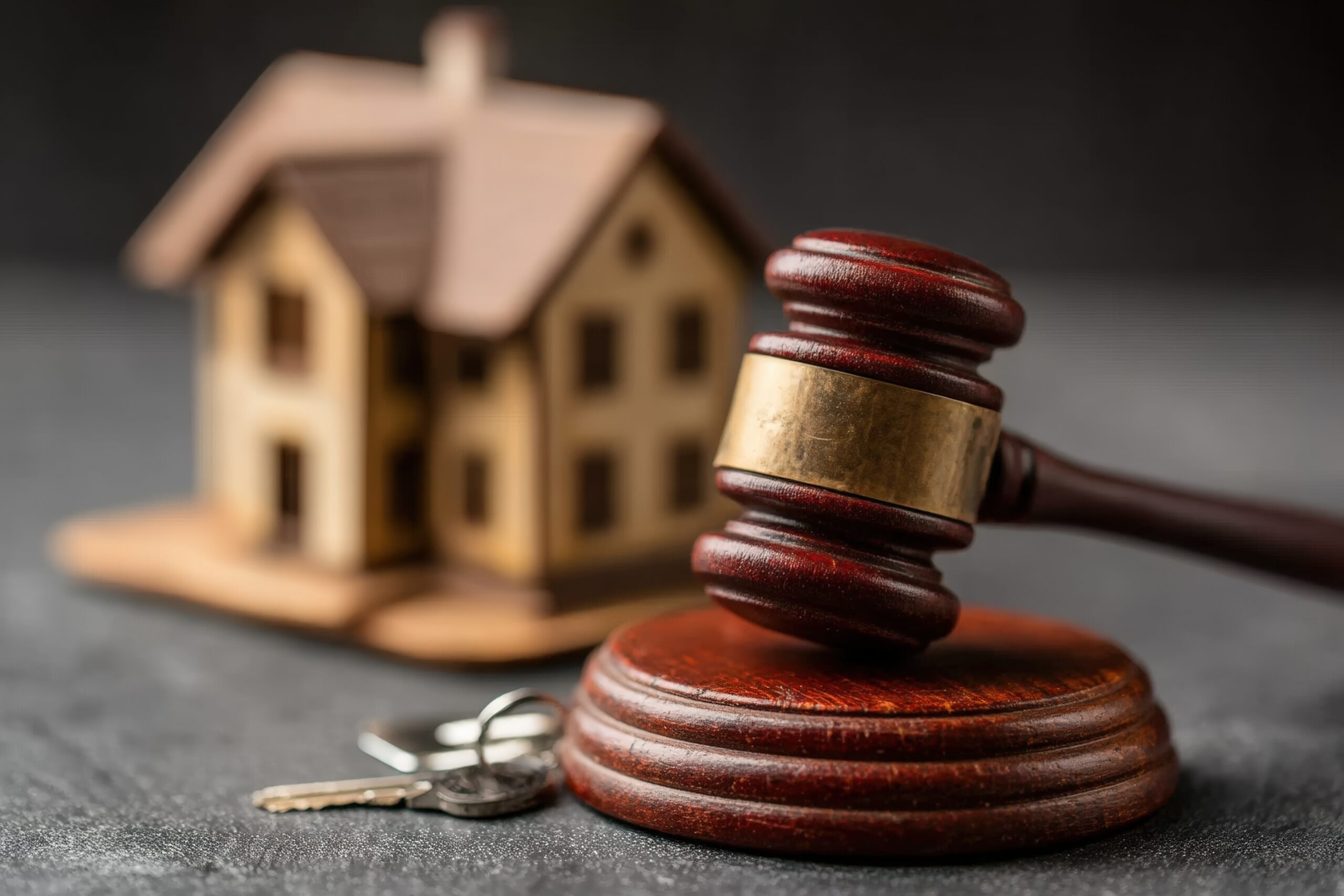Every Idaho renter deserves to live in a home that is safe, functional, and healthy. Unfortunately, many tenants across the state still endure unsafe living conditions caused by negligent landlords. From mold infestations to broken heating systems, these hazards can pose serious health and safety risks—and when a landlord fails to act, Idaho law provides powerful protections for tenants.
At Shep Law Group, we stand up for renters across Boise and the greater Treasure Valley who are dealing with uninhabitable living conditions or landlord retaliation. Whether your rental is unsafe or your landlord is ignoring your repair requests, you have the legal right to demand action. This guide explains Idaho’s tenant protection laws, identifies what qualifies as unsafe housing, and provides practical steps for asserting your rights and holding negligent landlords accountable.
Understanding Tenant Rights Under Idaho Law
Under Idaho Code § 6-320, landlords have a legal duty to maintain rental properties that are habitable and safe. This is part of what’s known as the Implied Warranty of Habitability, which automatically applies to all leases—written or verbal—throughout Idaho.
This means that even if your lease doesn’t specifically say your landlord must fix something, the law still requires them to maintain the home to basic livability standards. These include:
- Providing running water, plumbing, and a functioning sewage system
- Maintaining safe heating systems—especially during Idaho’s cold winters
- Ensuring the property is structurally sound (no collapsing floors, ceilings, or walls)
- Keeping electrical systems safe and operational
- Addressing infestations, mold, and other health hazards
- Maintaining secure windows and doors for tenant safety
If your landlord fails to uphold these standards, they could be violating Idaho’s rental housing laws. Courts throughout the state recognize that a landlord’s neglect of these duties can justify tenant legal action, including rent recovery or lease termination.
1. Recognizing Unsafe or Uninhabitable Living Conditions
Not all maintenance problems qualify as legal violations. For example, minor wear and tear or cosmetic issues like peeling paint may not breach Idaho’s habitability laws. However, problems that affect a tenant’s health or safety do.
Common examples of unsafe or uninhabitable conditions in Idaho rentals include:
- No heat or hot water, particularly during cold weather
- Persistent plumbing leaks or sewage backups
- Mold or mildew growth, especially from roof or pipe leaks
- Rodent or insect infestations that remain unaddressed
- Exposed wiring, electrical shorts, or fire hazards
- Structural dangers, such as broken stairs, sagging floors, or ceiling collapses
- Unsafe drinking water due to contamination
- Non-functioning locks or broken doors/windows that threaten security
Tenants should document all unsafe conditions as soon as they appear. Take dated photos and videos, keep copies of written repair requests, and record any communication with your landlord. These records are invaluable in court if you need to prove negligence.
This documentation can strengthen your position when demanding repairs or filing a formal complaint under Idaho Code § 6-320, which governs tenant remedies for unsafe housing conditions.
2. Idaho’s Implied Warranty of Habitability
Even if your lease doesn’t explicitly mention maintenance obligations, Idaho law assumes a minimum standard of livability through the Implied Warranty of Habitability. This warranty, grounded in Idaho Code § 6-303, requires landlords to maintain essential services and protect tenants’ health and safety.
Landlords must:
- Keep the property in compliance with local building and health codes
- Provide functioning utilities (water, electricity, heat)
- Maintain safe structural integrity
- Ensure sanitary living conditions
- Make repairs within a reasonable time after notice
If a landlord fails to comply after being notified of serious issues, tenants can pursue multiple remedies, including:
- Filing a lawsuit for damages or an order to compel repairs
- Recovering part of their rent for periods when the unit was uninhabitable
- Ending the lease early without penalty if the property becomes unsafe
- Seeking reimbursement for self-funded repairs in some situations
Importantly, Idaho law requires that tenants give written notice before taking legal action. The notice must clearly describe the unsafe condition, request repairs, and provide a reasonable timeframe—typically 3 to 30 days depending on the urgency.
Failure to give proper notice may weaken your claim, so legal guidance is essential before proceeding.
3. Legal Steps to Sue a Landlord for Unsafe Housing in Idaho
When your landlord refuses to make necessary repairs, Idaho law empowers you to take them to court. Here’s how to assert your rights legally and effectively:
Step 1: Notify Your Landlord in Writing
You must provide a written notice of the issue. Be specific—state what’s wrong, how it affects your health or safety, and the date by which you expect repairs to be made. Certified mail or email with confirmation ensures a verifiable record.
Step 2: Allow Reasonable Time for Repair
The law gives landlords a reasonable opportunity to fix the problem. For emergencies (like a gas leak or no heat in winter), immediate action is expected. For non-emergency issues, landlords typically have up to 30 days to address the problem.
Step 3: File a Complaint
If no repairs occur, you may file a Complaint for Damages or Specific Performance under Idaho Code § 6-320. You can request the court to order repairs, reduce rent, or award financial damages.
Step 4: Seek Compensation
If your landlord’s neglect caused you to suffer physical, financial, or emotional harm, you may claim compensation for:
- Medical bills from unsafe conditions (e.g., mold exposure, injury)
- Lost or damaged property (e.g., belongings ruined by leaks)
- Alternative housing costs during displacement
- Emotional distress or loss of use
Winning tenants may also recover attorney’s fees under Idaho law. Courts have awarded such fees in numerous habitability cases, especially when landlords ignored documented repair requests.
4. When Tenants Can Legally Break a Lease
Idaho’s housing laws recognize that some properties become so dangerous or unsanitary that continuing to live there is unreasonable. In these situations, tenants may legally terminate their lease early without penalty if they follow the correct process.
You may have the right to break your lease if:
- There are serious health or safety hazards (e.g., black mold, gas leaks, fire risks)
- The home lacks essential utilities for an extended period
- The landlord refuses to repair after proper notice
- The unit is condemned by a housing inspector
Steps to protect yourself include:
- Providing written notice of the issue and repair request.
- Allowing a reasonable time for correction.
- Sending a termination letter referencing Idaho Code § 6-320.
- Keep copies of all documentation in case the landlord disputes your claim.
When handled correctly, Idaho courts generally support tenants who vacate due to unsafe housing. If you move out before the problem is fixed, make sure to take photos and obtain inspection records as proof of the conditions that forced you to leave.
5. Landlord Retaliation Is Illegal
Idaho law strictly prohibits landlords from retaliating against tenants who assert their legal rights. According to Idaho Code § 6-320(3), it is illegal for a landlord to:
- Evict a tenant for reporting unsafe conditions
- Raise rent or cut services as punishment
- Refuse lease renewal due to a complaint
- Harass or threaten a tenant for contacting code enforcement
If a landlord takes any retaliatory action within six months of your complaint or lawsuit, the law presumes retaliation. Tenants can sue for damages, recover attorney’s fees, and sometimes obtain reinstatement of tenancy.
Landlord retaliation undermines tenant rights and discourages renters from reporting violations. Idaho’s laws are designed to prevent that kind of abuse of power by ensuring tenants can safely assert their rights.
6. How an Idaho Tenant Rights Attorney Can Help
Standing up to a negligent landlord can feel overwhelming, especially if you fear eviction or can’t afford to move. But with professional legal support, you can hold your landlord accountable while protecting your housing stability.
The attorneys at Shep Law Group represent tenants in Boise, Meridian, Nampa, Caldwell, and throughout Idaho who are facing unsafe housing conditions or landlord retaliation. We offer:
- Comprehensive review of your lease and documentation
- Preparation of legally compliant repair and demand letters
- Filing of habitability lawsuits under Idaho Code § 6-320
- Representation in court or negotiations with property owners
- Assistance in recovering damages and attorney’s fees
Our firm’s advocacy-driven approach ensures that Idaho renters—whether in apartments, mobile homes, or single-family rentals—receive fair treatment and access to justice.
If your landlord is ignoring safety issues or threatening eviction for reporting them, it’s time to take a stand. Contact Shep Law Group for a free consultation to discuss your tenant rights under Idaho law. Your home should be a place of security, not a source of harm—and the law is firmly on your side.
Frequently Asked Questions About Tenant Rights in Idaho
Can I withhold rent if my landlord won’t fix unsafe conditions?
In Idaho, rent withholding is risky unless handled correctly. Tenants must provide written notice and allow a reasonable period for repairs first. If the landlord still refuses, you can seek a rent reduction or file a claim in court under Idaho Code § 6-320. Consulting an attorney before withholding rent is highly recommended to avoid eviction.
How long does a landlord have to make repairs in Idaho?
There’s no exact timeframe, but Idaho law requires landlords to make repairs within a “reasonable time.” For critical issues—such as no heat, major leaks, or electrical hazards—repairs should be made immediately or within a few days. Non-emergency issues may allow up to 30 days for resolution.
What should I do if my rental unit has mold or water damage?
Document the issue with photos, notify your landlord in writing, and request prompt repairs. Mold is considered a health hazard under Idaho’s habitability laws. If the landlord ignores your request, you may have grounds to terminate the lease or seek damages for health impacts and relocation costs.
Can my landlord evict me for reporting them to authorities?
No. Retaliatory eviction is illegal under Idaho Code § 6-320(3). If you report unsafe housing conditions, your landlord cannot lawfully evict, raise rent, or refuse renewal because of your complaint. If retaliation occurs, you can file a retaliation lawsuit and potentially recover compensation.
How much can I sue my landlord for in Idaho?
The amount depends on your losses. You can recover repair costs, medical bills, relocation expenses, and pain and suffering resulting from unsafe housing. Idaho courts may also award attorney’s fees and court costs if you win the case. There is no cap on actual (economic) damages in habitability cases.




